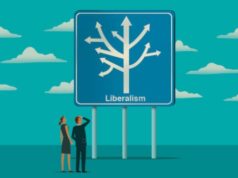The instinctive reaction to any misdeeds by a private organization is to ask for a legal framework to prevent such misdeeds. But there is little need when we already have an invisbile hand ready to dole out punishment. Take the case of the news division of the American network CBS: a media outlet whose misdeeds are translating into lost revenues.
CBS’s Dan Rather, one of the most famous and respected news anchors in the US, had brought forth papers during a news broadcast in mid-September, from a confidential source which allegedly proved that President Bush had used family connections to get his way in the Texas Air National Guard militia unit in the early 1970s (i.e., during the Vietnam War). Bloggers from both the right and the left came forward within minutes of CBS releasing the documents online to show the document as a forgery. Typewriting experts (I honestly knew no such thing existed before) came forth to differentiate the way in which fonts are rendered, and showed that the documents may well have been typed on Microsoft Word, photocopied them to reduce the quality, and then sent to CBS via facsimile. A long list of evidence can be found here.
CBS waited much too long before acknowledging the forgeries, and many of CBS’s experts said they couldn’t honestly guarantee 100% validity for any of the documents. Furthermore, the sources revealed turned out to be a number of Perhaps the widest circulated message after the scandal was that, private citizens typing on their weblogs, not the government or the media, brought about the truth. Even so, millions of Americans automatically found themselves shaking their heads in disbelief, uttering something to the effect of “there ought to be a law preventing such lies in the press.”
US Representative Joe Barton (R-Texas) vocalized this feeling when he called for a Congressional investigation to see what can be done to prevent such things from happening in the future. Specifically, he “threatened to introduce legislation requiring TV news operations to impose safeguards against partisan bias seeping into reports.” (There are allegations that Rather bypassed company policies for partisan interests, but that is another matter altogether.) But this is not only futile, it will also end up being unconstitutional–the First Amendment of the US Constitution bans such restrictions.
Indeed, the Invisible Hand has already done the job. The New York Post reports that Dan Rather’s nightly news program has seen its viewership drop 7%. Advertisers notice such a change, and many analysts are already warning that companies could start pulling ads and money from the show (many advertisers have already done so).
People have been fleeing so-called network broadcast television news for years, as many believe it doesn’t deliver news as they wish. Internet and cable networks have been rewarded for their relative strengths. This is an instant and unbiased system of rewards and punishments that no government oversight could duplicate.
Post Disclaimer
The opinions expressed in this essay are those of the authors. They do not purport to reflect the opinions or views of CCS.





